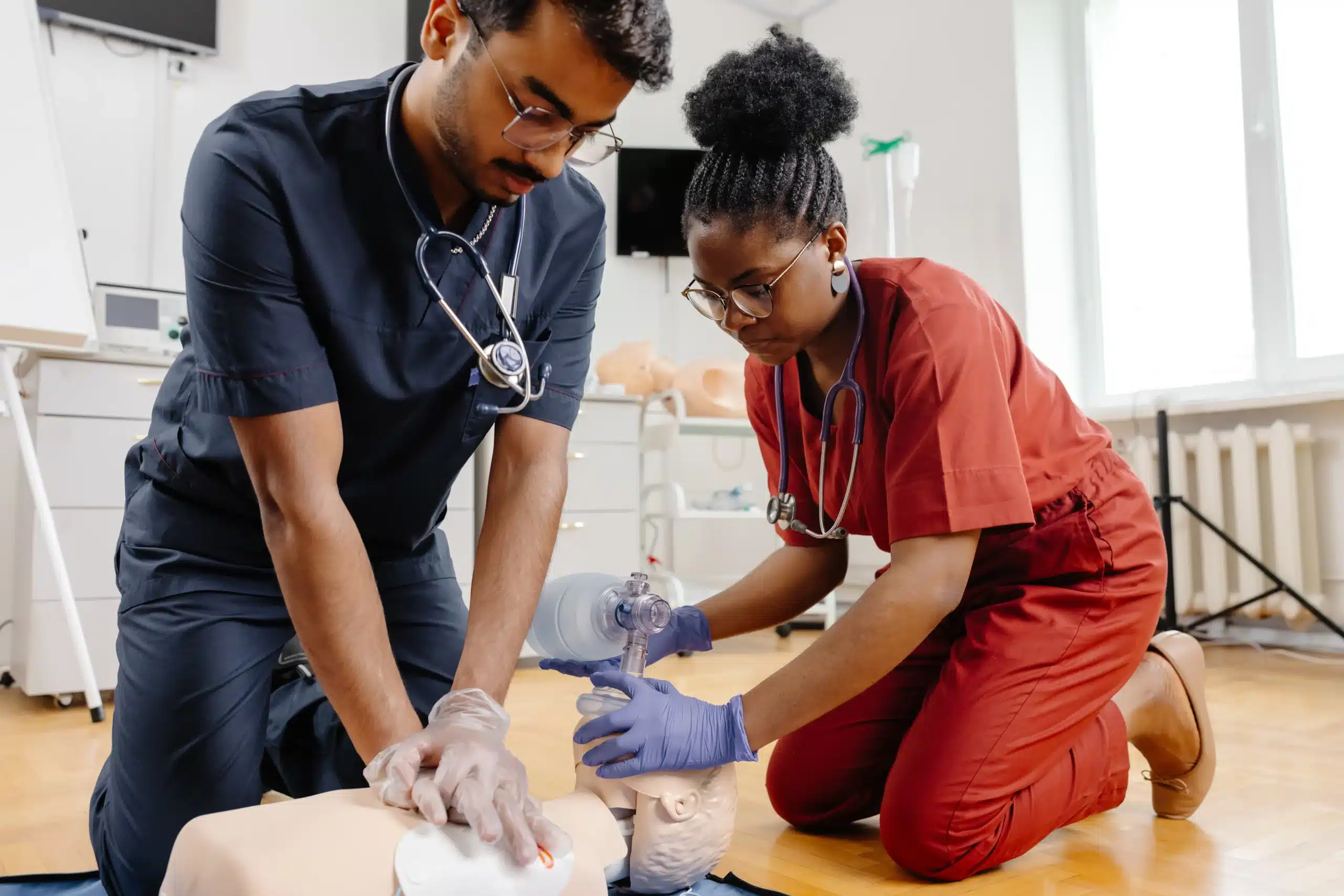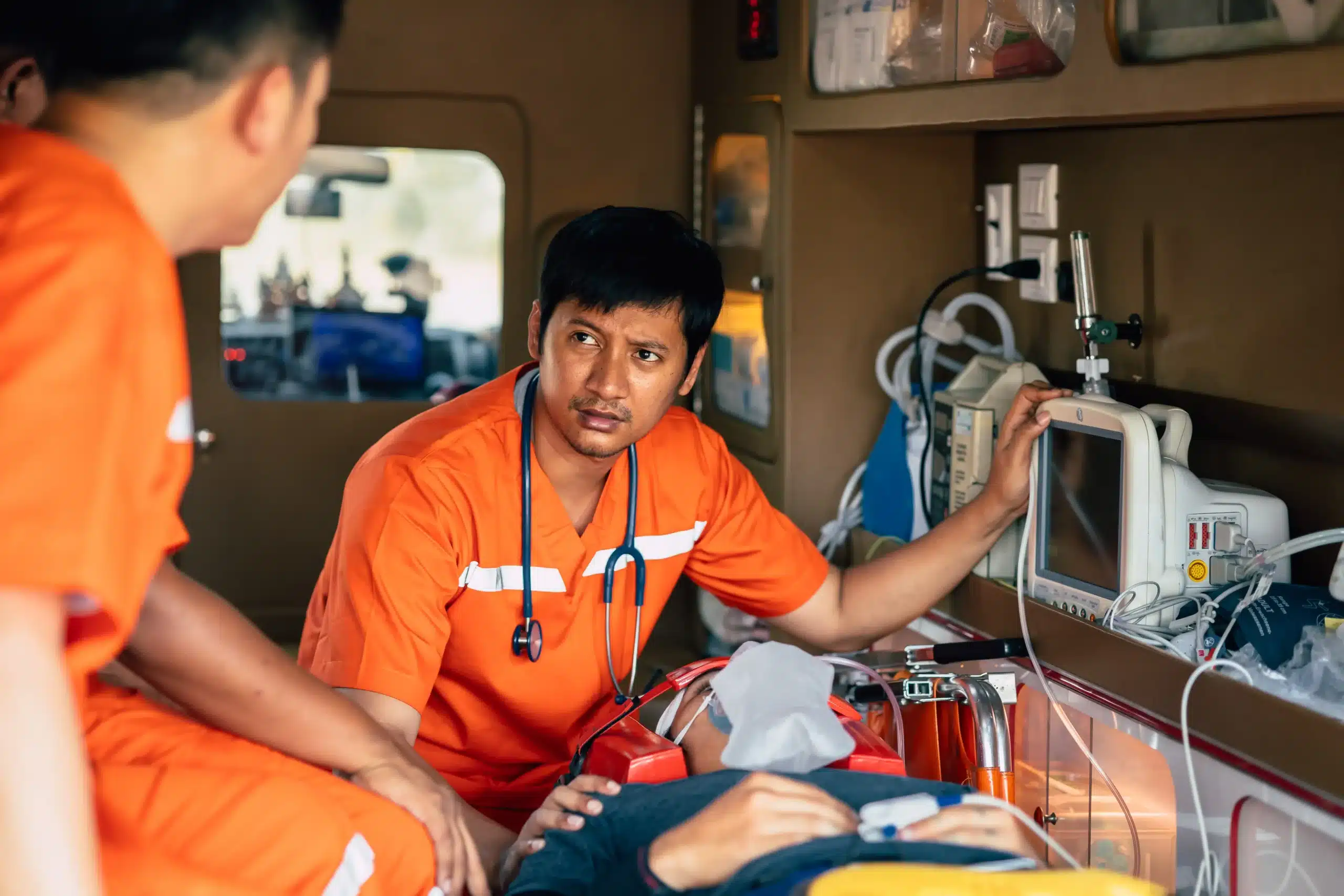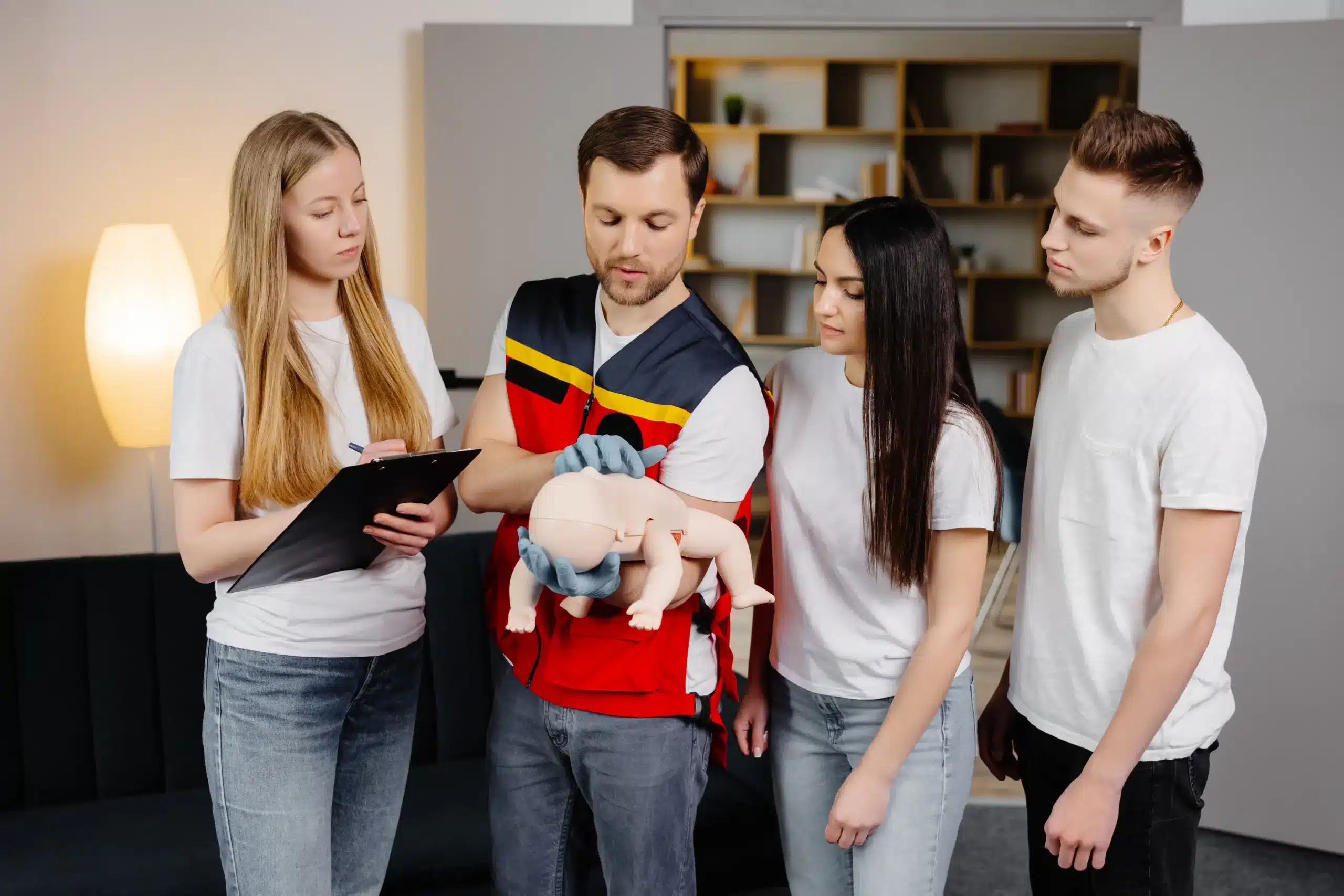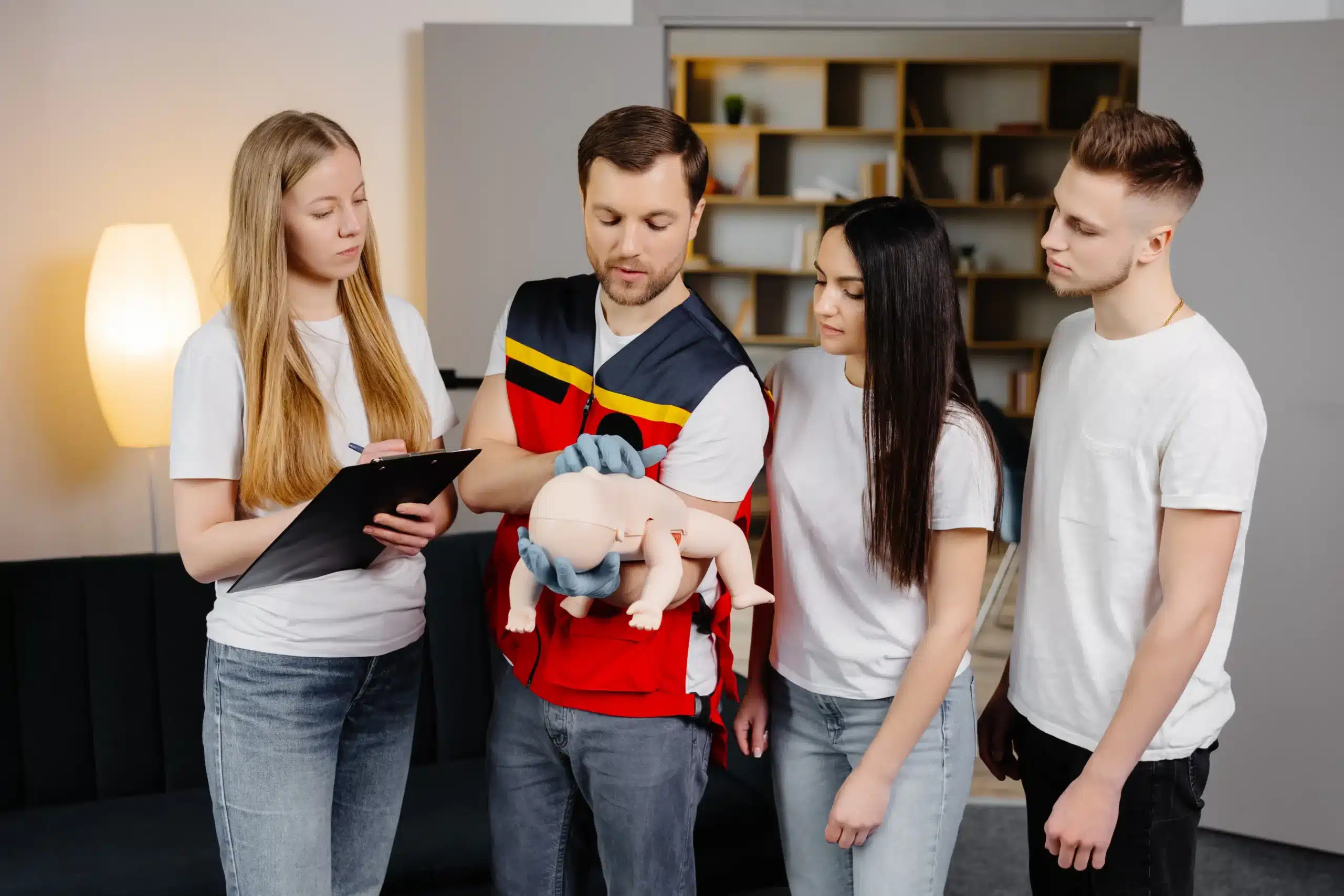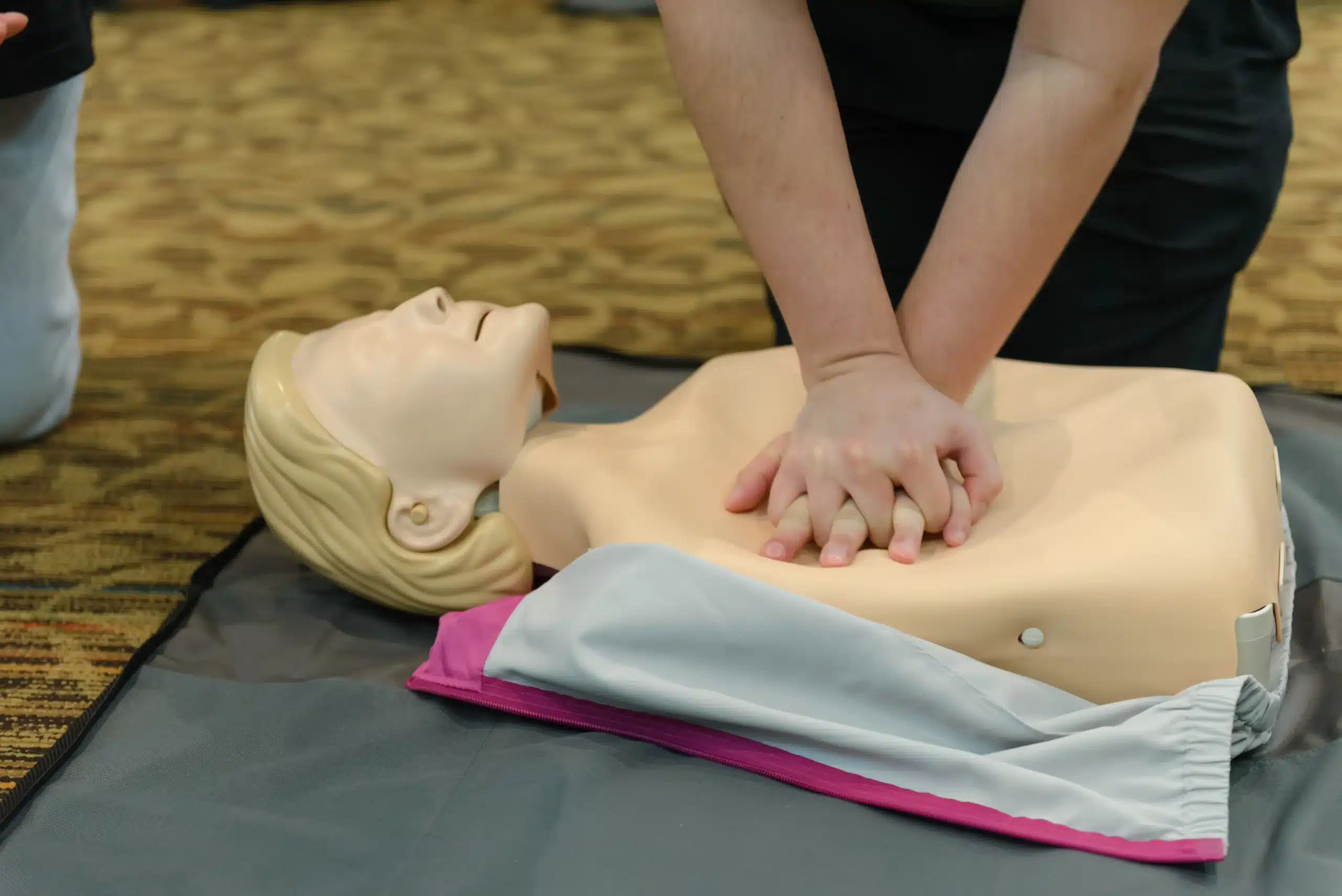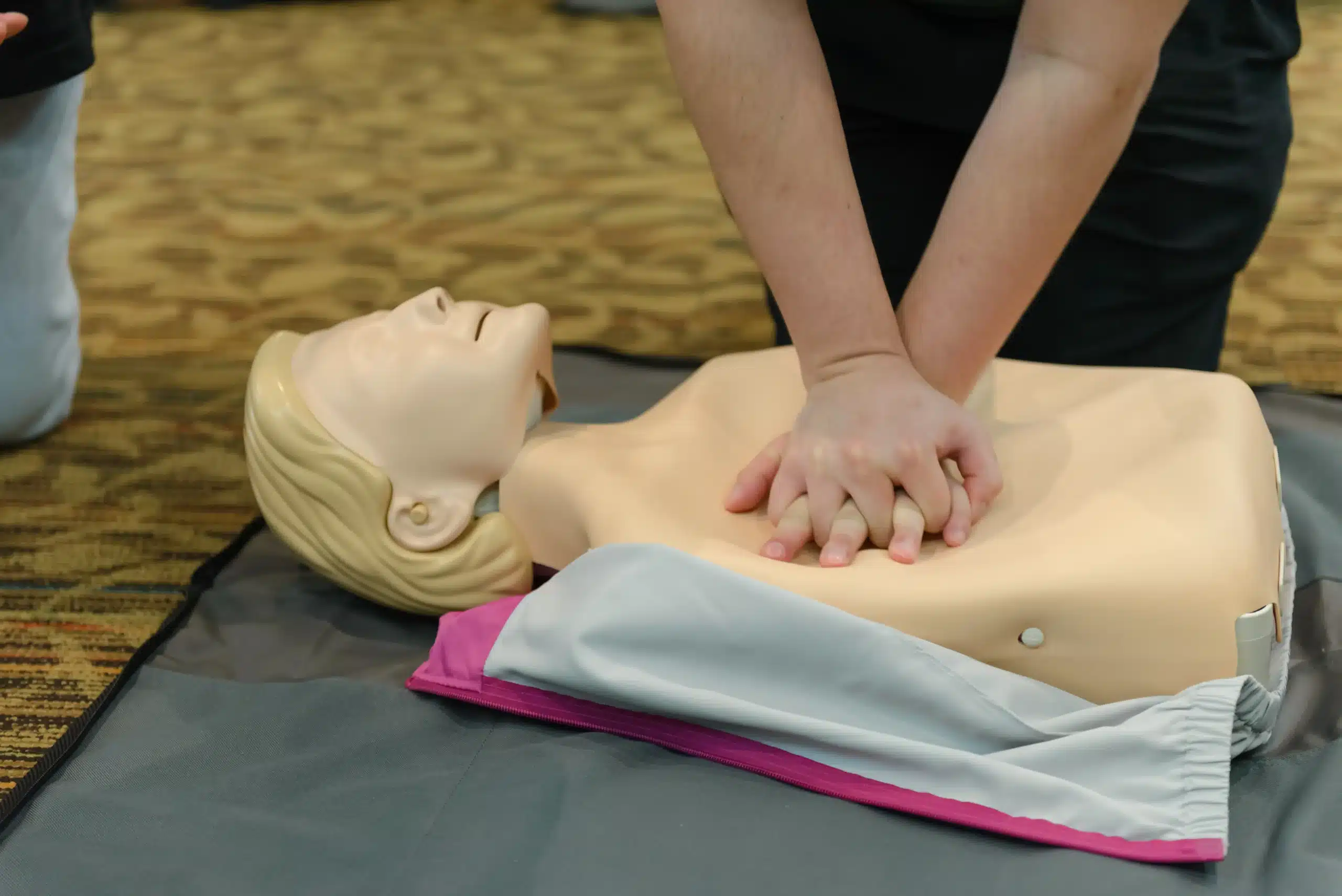In a city as vibrant and dynamic as San Francisco, being prepared for the unexpected is essential. While we hope we never have to use it, knowing CPR can empower us to make a real difference in a critical situation. If you’re looking for information on CPR renewal in SF, this guide is your comprehensive resource. Whether your certification is expiring or you simply want to brush up on your skills, we’ll cover everything you need to know, from finding the right course to understanding the latest guidelines. Let’s ensure you’re equipped to respond effectively and confidently in an emergency.
Key Takeaways
- Stay current with CPR: Regularly renewing your certification ensures you’re prepared with the latest life-saving techniques and often meets job requirements. It also builds confidence for real-life emergencies.
- Pick the right learning format: Choose between online convenience or in-person instruction based on your learning style and schedule. Both options deliver essential CPR skills and knowledge.
- Select a quality training provider: Seek out American Heart Association certified courses, compare pricing and formats, and read reviews to find the best fit for your needs and budget in San Francisco.
What is CPR Renewal in San Francisco?
CPR renewal keeps your certification current and your skills sharp. It’s a chance to refresh your knowledge and learn updated techniques. CPR guidelines evolve, so staying current ensures you’re prepared to provide effective care in an emergency. Your CPR certification is valid for two years. Plan to renew within 30 days of the expiration date to maintain your credentials. The renewal process typically involves a course and a skills test, ensuring you can confidently perform CPR when needed. By regularly renewing your CPR certification, you contribute to a safer community in San Francisco. Renewal courses are readily available throughout the city.
Why Renew Your CPR Certification?
CPR certification isn’t a one-and-done deal. Renewing your certification is essential for maintaining your skills, meeting workplace standards, and having the confidence to act in emergencies. Let’s explore why staying current with your CPR training is so important.
Maintain Skills and Learn Updates
CPR techniques and guidelines can change as medical knowledge evolves. Renewing your CPR certification ensures you’re up-to-date with the latest practices, giving you the best chance of providing effective assistance during a cardiac arrest. Plus, regular practice reinforces these life-saving skills, making you more comfortable and proficient should you ever need to use them. CPR certifications are typically valid for two years, and it’s generally recommended to renew within 30 days of expiration to avoid retaking the entire course.
Meet Workplace Requirements
Many professions, especially in healthcare, education, and childcare, require current CPR certification. Renewing your certification demonstrates your commitment to maintaining the necessary skills and fulfilling these crucial workplace requirements. This not only protects your job but also ensures the safety of those in your care. Often, CPR training is combined with AED and first-aid training, providing a comprehensive approach to emergency preparedness.
Build Confidence in Emergencies
Knowing you have the most current CPR skills can make a world of difference in a high-pressure emergency situation. Regular CPR training builds confidence and reduces hesitation, allowing you to react quickly and effectively when every second counts. Quality training programs equip you with the knowledge and practice to perform CPR safely and effectively, empowering you to make a real difference in someone’s life. This confidence can also translate to other areas of your professional life, demonstrating your commitment to safety and preparedness.
Top CPR Renewal Courses in San Francisco
Finding the right CPR renewal course can feel overwhelming, but several excellent providers in San Francisco make the process straightforward. Here’s a closer look at some of your top options:
Safety Training Seminars
Safety Training Seminars offers American Heart Association (AHA) certified courses in San Francisco, covering everything from basic CPR to advanced life support. They’re known for competitive pricing on these essential training classes, making them a solid choice for individuals and organizations. Convenient locations and frequent class schedules make fitting a renewal course into your busy life easier.
American Red Cross
The American Red Cross provides CPR and First Aid training throughout San Francisco. Developed and reviewed by the Red Cross Scientific Advisory Council, these courses often emphasize smaller class sizes for more personalized learning.
Revive CPR
Revive CPR offers AHA-certified CPR, BLS, and First Aid classes in San Francisco. Their instructor-led, hands-on classes focus on a high-quality, efficient learning experience. They also guarantee the lowest prices and offer free rescheduling, adding flexibility for those with unpredictable schedules.
Local Community Colleges
San Francisco’s community colleges often offer CPR training. These courses can be a cost-effective option and frequently cater to diverse learning styles with various schedules and formats, including online and in-person classes. Explore local community college websites for more information.
CPR Renewal Costs and Value
Knowing the price range for CPR renewal and what influences it can help you budget effectively and find the best value. This section breaks down typical costs, factors affecting them, and tips for finding discounts.
Typical Prices
CPR renewal costs in San Francisco vary based on the provider, course type (BLS, ACLS, PALS, etc.), and format (online, blended, or in-person). Safety Training Seminars is known for competitive pricing on American Heart Association (AHA) courses, including BLS, ACLS, and PALS. You can often find discounts—sometimes as much as $15 off—on courses like the AHA BLS CPR course through San Francisco CPR Classes. A little research can often save you money.
Factors Affecting Cost
Several factors influence the overall cost of your CPR renewal. In-person classes typically cost more than online or blended learning options because of the expenses associated with classroom space, equipment, and instructor time. While convenient, online CPR certification often requires a separate in-person skills assessment, which may add to the total cost. You can learn more about the differences between online and in-person training by reading about the difference between in-person vs. online CPR certification. Blended learning, combining online coursework with an in-person skills session, often falls somewhere in between in terms of price. The specific course you need (BLS, ACLS, PALS, etc.) also affects the price, with more advanced certifications generally having higher fees.
Find Discounts and Promotions
Look for potential discounts or promotions to make your CPR renewal more affordable. Some providers, like the American Red Cross, offer discounts on training supplies or other resources. Check their website for current promotions or discount codes. While the Red Cross offers helpful supplemental materials to help maintain your skills, these don’t replace formal renewal. Also, consider checking with your employer or professional organization; they may offer group discounts or subsidized training. Safety Training Seminars also has a low price guarantee, so you can be confident you’re getting a competitive rate.
How to Renew Your CPR Certification
So, your CPR certification is expiring—now what? Don’t worry, renewing is straightforward. This section breaks down the process, so you can get recertified quickly and easily.
Renewal Prerequisites
CPR certification is typically valid for two years. You can usually take a renewal course within 30 days of your certification expiring or while your current certification is still valid. Check with your certifying organization, like the American Heart Association or American Red Cross, for specific guidelines.
Course Length and Content
Renewal courses are generally shorter than initial certification courses. A typical BLS renewal course takes about 4.5 hours. The content focuses on refreshing essential CPR skills and knowledge, including chest compressions, rescue breaths, and using an AED. You’ll also review the latest CPR guidelines and any updates since your last certification.
Hands-On Practice
In-person CPR renewal courses offer the significant benefit of hands-on practice with realistic mannequins and direct feedback from certified instructors. This practical experience helps build muscle memory and confidence, ensuring you’re prepared to respond effectively in a real emergency. While online or blended learning options exist, in-person training at locations like Safety Training Seminars provides a more immersive learning experience.
Get Certified the Same Day
Many CPR training providers offer same-day certification. This means you can complete your renewal course and receive your updated certification card all within the same day. This is especially helpful for those with busy schedules or upcoming deadlines. Check course schedules and availability to find a same-day option that works for you.
Online vs. In-Person CPR Renewal: Choose the Right Format
Benefits of Online and Blended Learning
Online CPR renewal offers flexibility and convenience. You can learn at your own pace, fitting the training around your schedule and avoiding travel time. Online courses are often more affordable than in-person classes, making them a budget-friendly option. Many online providers offer blended learning, combining online coursework with in-person skills sessions. This format gives you the best of both worlds—the convenience of online learning with the hands-on practice of a traditional class. If you prefer a more independent learning style and need a cost-effective option, online or blended learning might be a good fit.
Advantages of In-Person Training
In-person CPR renewal provides a structured, immersive learning experience. You’ll receive immediate feedback from a certified instructor, allowing you to refine your technique in real-time. This direct interaction can be especially helpful for those who learn best through hands-on practice and personal instruction. The classroom setting also offers the opportunity to ask questions, network with other professionals, and practice skills in a group setting. For a more interactive and personalized learning experience, consider in-person CPR training at one of our locations. Safety Training Seminars offers a low price guarantee to ensure you’re getting the best value. We offer a variety of American Heart Association courses, including BLS, ACLS, and PALS.
Select the Best Format for You
Both online and in-person CPR renewal courses cover the same life-saving techniques and adhere to established guidelines, like those from the American Heart Association. The best format for you depends on your learning preferences, budget, and schedule. If you value flexibility and affordability, explore online or blended learning options. If you thrive in a hands-on, interactive environment, in-person training might be a better choice. Consider your individual needs and choose the format that will best prepare you to respond confidently in an emergency. You can also explore convenient renewal options like our RQI programs.
What Happens in Your CPR Renewal Course?
Your CPR renewal course isn’t about starting from scratch. It’s designed to refresh your skills, introduce updated guidelines, and ensure you’re confident responding to emergencies. Here’s what you can expect:
Course Content and Techniques
CPR renewal courses cover core techniques like chest compressions, rescue breaths, and using an AED. You’ll review how to recognize the signs of a heart attack and stroke and practice responding to real-life scenarios involving adults, children, and infants. Expect a combination of classroom instruction, demonstrations, and hands-on practice. Many courses, like those offered by the American Red Cross, incorporate the latest techniques and guidelines.
Instructor Qualifications
Your instructors will be certified professionals with significant experience in emergency response. They’ll guide you through the course material, answer your questions, and provide feedback on your technique. CPR Arlington emphasizes the importance of experienced instructors who are passionate about sharing their knowledge. This ensures you receive high-quality training and feel prepared to handle real-world emergencies.
Certification Types and Validity
Most CPR certifications, including those for Basic Life Support, are valid for two years. Renewal courses are available for those whose certification is within 30 days of expiring or for current certificate holders. CPR1 clarifies that the renewal process typically involves demonstrating your skills through practical assessments and sometimes a written test. The specific requirements might vary slightly depending on your initial certification. After successfully completing your renewal course, you’ll receive an updated certification card, valid for another two years. You can find BLS renewal courses in San Francisco through various providers.
Prepare for Your CPR Renewal Course
Getting ready for your CPR renewal course doesn’t have to be stressful. A little preparation goes a long way in ensuring you have a smooth and valuable learning experience. Here’s what you need to know:
What to Bring
Your CPR renewal course will primarily focus on hands-on skills practice, so comfortable clothing is key. Think athletic wear or anything you can easily move around in. You won’t need to bring any textbooks or manuals, as course materials are typically provided. A small notebook and pen might be helpful for jotting down notes. Most importantly, arrive with a positive attitude and a willingness to learn!
What to Expect
CPR renewal courses are designed to refresh your skills and ensure you’re up-to-date on the latest American Heart Association guidelines. Expect a combination of interactive discussions, demonstrations, and plenty of hands-on practice. Your instructor will guide you through the essential steps of CPR, including chest compressions, rescue breaths, and how to recognize the signs of a cardiac emergency. These courses typically cover adult, child, and infant CPR, as well as how to use an AED. CPR certification is valid for two years, and renewal courses are available for those whose certifications are nearing expiration.
Get Your Certification
After successfully completing your CPR renewal course, you’ll receive your updated certification card. This card validates your CPR knowledge and skills. Regular CPR training isn’t just about maintaining a certification; it’s about being prepared to potentially save a life. By staying current with the latest techniques, you empower yourself to act confidently and effectively in an emergency. Safety Training Seminars offers a variety of CPR courses in San Francisco to meet your needs.
Common CPR Renewal Myths
Let’s clear up some common misconceptions about CPR renewal. These myths can prevent people from getting recertified, which can have serious consequences.
“Certified Once, Certified Forever”
This simply isn’t true. CPR guidelines and best practices change as medical knowledge improves. Your CPR certification is typically valid for two years. This timeframe ensures you’re up-to-date on the most effective, life-saving techniques. After two years, you’ll need to renew your certification to maintain your skills and knowledge.
“Online Courses Aren’t Valid”
While in-person training offers benefits, plenty of reputable organizations, including the American Heart Association, now offer fully valid online CPR renewal courses. These courses often use a blended learning format, combining online modules with in-person skills sessions for a flexible and convenient way to renew. Always check with your employer or certifying body to ensure they accept online or blended certifications. Many organizations recognize the value of these accessible programs. For more information on CPR training options, take a look at resources like CPR Classes.
“Renewal Takes Too Long”
CPR renewal doesn’t have to take days. Renewal courses are streamlined, focusing on essential updates and skills practice. Many providers offer flexible schedules and formats to accommodate busy schedules. You can often renew your certification quickly, sometimes even completing the process in a single day. Resources like CPR1 offer more information on CPR renewal timelines and processes.
Choose the Right CPR Renewal Provider in San Francisco
Finding the right CPR renewal provider is crucial for a positive and effective learning experience. Consider these factors to make an informed decision:
Key Features
Look for providers offering American Heart Association (AHA) certified courses like those at Safety Training Seminars. AHA certification is widely recognized and respected. While other organizations like the American Red Cross also offer CPR training, make sure the certification aligns with your workplace requirements. Some providers, like Revive CPR, emphasize instructor-led training, ensuring personalized guidance and feedback, rather than relying solely on voice-assisted manikins. This hands-on approach can significantly enhance your learning and skill retention. Safety Training Seminars offers a range of AHA courses, including BLS, ACLS, and PALS, catering to various professional needs.
Compare Courses
CPR renewal courses come in different formats. The Red Cross, for example, offers online and blended learning options, combining online modules with in-person skills sessions. Consider your learning style and schedule when selecting a format. Online courses offer flexibility, while in-person classes provide immediate feedback and interaction with an instructor. Also, compare course costs. Online CPR certification is generally less expensive than in-person training. However, the value of hands-on practice and instructor interaction in a classroom setting can be invaluable. Consider what best suits your learning style and budget.
Check Reviews and Testimonials
Before committing to a provider, research their reputation. Look for reviews and testimonials from previous students. Safety Training Seminars is known for its high-quality AHA courses and competitive pricing in the San Francisco Bay Area. Revive CPR also highlights its low price guarantee and offers group discounts. Reading reviews can give you insights into the quality of instruction, course materials, and overall learning experience. This information can help you choose a provider that meets your needs and budget. Don’t hesitate to ask providers for references or additional information about their courses. A reputable provider will be happy to answer your questions and address any concerns.
Related Articles
- CPR Training in San Francisco: A Complete Guide – San Francisco CPR Classes
- CPR Certification in San Francisco: Your Guide – San Francisco CPR Classes
- Low-Cost CPR Training in Northern California: A Guide – San Francisco CPR Classes
- ACLS Renewal in SF: Your Complete Guide – San Francisco CPR Classes
- Busting CPR Myths to Save Lives
Frequently Asked Questions
How long is my CPR certification valid? CPR certifications are typically valid for two years. It’s a good idea to renew within 30 days of the expiration date to avoid any lapse in your credentials.
What’s the difference between online and in-person CPR renewal? Online renewal offers flexibility, allowing you to learn at your own pace and often at a lower cost. However, it usually requires a separate in-person skills test. In-person renewal provides immediate feedback from an instructor and hands-on practice, which can be beneficial for many learners. Both options cover the same core content and result in a valid certification.
How much does CPR renewal cost in San Francisco? The cost varies depending on the provider, the type of certification (BLS, ACLS, PALS, etc.), and the course format (online, blended, or in-person). Look for providers like Safety Training Seminars who offer competitive pricing and sometimes even low-price guarantees.
What should I expect during a CPR renewal course? Expect a refresher on essential CPR techniques like chest compressions, rescue breaths, and AED use. You’ll also review the latest guidelines and practice responding to various emergency scenarios. Most renewal courses are shorter than initial certification courses, focusing on updating your existing skills.
How can I find a reputable CPR renewal provider in San Francisco? Look for providers offering American Heart Association (AHA) certified courses, as these are widely accepted. Check reviews and testimonials, compare course formats and costs, and consider factors like instructor experience and class size. Don’t hesitate to contact providers directly with any questions.


